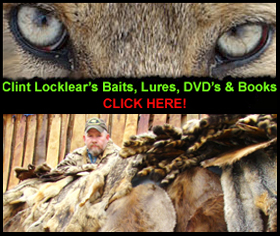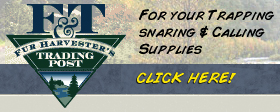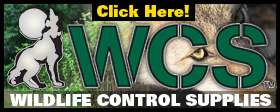 The Rant of a free Trapper this week is on the bobcat tag lawsuit that is going on in MT. Below is the information and links to stand up for your trapping right. But more than that is how animal rights nut cases piss me off really bad. Plus the mental midgets make tax payers pay for the lawsuits, that is right, the anti’s get a free lawsuit to take your rights away. I wish Trump would get this loop hole fixed.
The Rant of a free Trapper this week is on the bobcat tag lawsuit that is going on in MT. Below is the information and links to stand up for your trapping right. But more than that is how animal rights nut cases piss me off really bad. Plus the mental midgets make tax payers pay for the lawsuits, that is right, the anti’s get a free lawsuit to take your rights away. I wish Trump would get this loop hole fixed.
Something new I will be doing from time to time, The Rant of a Free Trapper. This is just some of my thoughts, not so much about trapping per say, but as you know, trapping is a part of me so it will come out. These shows are more about critical thinking, business, health, money, politics, philosophy and odd ball things that I think about. Please note that this is not a safe space for mental weakness or ego. Hope you enjoy.
C.I.T.E.S. Lawsuit Alert Request for Public Comments**Please note time sensitive** The USFWS posted a draft EA with 4 alternatives to the Federal Register for comment on March 10, 2017, with comments due back by April 10, 2017. ** You may want to forward to your local DNR ** |
| ———-Please Read ———-This is critically important to the future of Bobcat and Otter Trapping! |
| There is a lawsuit, that if successful, could end the export of bobcats and otters!
Again, It is important that you read this e-mail and provide comments at the link provided. Take the time to leave your comments. You can be assured, the Anti’s will be leaving their comments! WildEarth Guardians sued the USFWS in Montana District Court arguing that the USFWS has not appropriately considered the environmental impacts of the CITES furbearer export program pursuant to NEPA. The lawsuit specifically references export of bobcat, lynx, river otter, gray wolves, and brown bears. The USFWS had previously concluded that the CITES export program was categorically excluded from NEPA review. As part of a stay agreement issued by the Court, the USFWS agreed to prepare an EA on the CITES export program for furbearers, solicit comments through the Federal Register, issue a final analysis and decision, confer with the Plaintiffs, and then file a report to the Court asking the complaint be either dismissed or continued. The USFWS posted a draft EA with 4 alternatives to the Federal Register for comment on March 10, 2017, with comments due back by April 10, 2017. The EA document can be downloaded at: https://www.regulations.gov/document?D=FWS-HQ-IA-2017-0012-0002 Other information can be accessed here https://www.regulations.gov/document?D=FWS-HQ-IA-2017-0012-0001. The 4 alternatives (starting on page 9) are: 1. Alternative 1, the “preferred action” alternative/”No action” alterative: Continues the CITES Export Program in its current form. 1. Alternative 2, the “no tag” alternative
To comment: https://www.regulations.gov/docket?D=FWS-HQ-IA-2017-0012 and click the “Comment Now” button. The key messages can include: 1) Support for Alternative One/the preferred alternative of “no action”. This would maintain the current tagging process and allow for the continued export of otters and bobcats. 2) Comments should primarily focus on ways to further support the conclusions in the draft, specifically why the current export program has not caused negative environmental/economic consequences, and why alternatives 3 and 4 are more likely to do so. a. Trapping and hunting is highly regulated; trapping and hunting seasons are established to assure long-term sustainability of bobcat and otter populations. States are the wildlife management authority for these species and have monitoring programs in place to assure sustainable populations. b. Since the current export program was established, otter and bobcat population size and occupied range has increased in the United States. For example, otters occur in all states where they historically did, and 46 of 47 states have indicated stable to increasing otter populations. c. The current system (tags/alternative 1) is a success story and an example of collaborative safeguards put in place by state agencies and USFWS, with cooperation from trappers. This success story does not need to be fixed, especially through alternative 3 and 5. d. Loss of the export market (under Alternative 3) or higher costs/burden of individual export permits (Alternative 4) will have negative economic consequences to trappers, hunters, supply dealers, hunting guides, etc… e. Loss or higher cost/burden of export will result in declines in trapper participation and higher public costs for addressing wildlife conflicts. Certain species are often trapped together (e.g., otters and beavers, bobcats and coyotes), and a loss in export potential for CITES species will lead to increases in human-wildlife conflicts (e.g., aquaculture, flooding of roads/agriculture/private property, livestock depredation) 3) While some may prefer Alternative 2 (no tags), we believe this is “not the time to make that case.” A previous AFWA CITES Work Group discussed this idea with the various national trapping associations, state furbearer biologists, and fur dealers/fur auction houses and concluded this option was not feasible at the time due to opposition from fur buyers and fur auction houses due to increased paperwork/reporting on their end. 4) You are encouraged to provide personalized arguments in support of the draft’s conclusion (i.e., NOT form letters containing the exact verbiage above). Multiple comments submitted with exact wording will not be treated by the USFWS as separate comments. |





